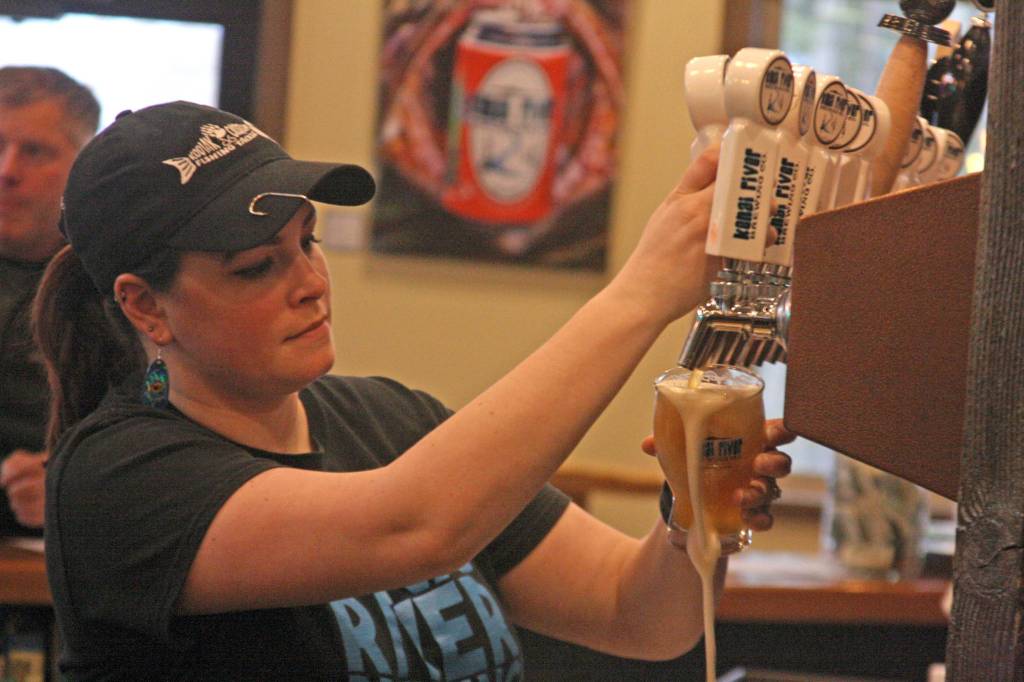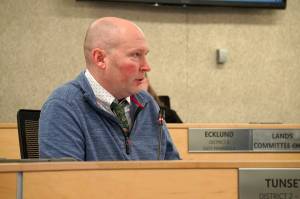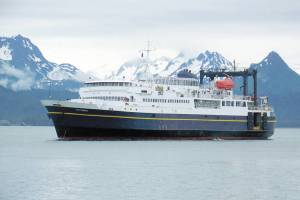Sponsor to pull alcohol bill if brewery serving size cuts stay
Published 5:13 am Thursday, May 10, 2018
The sponsor of a bill revising state alcohol laws will quash the legislation if a recently introduced amendment lowering the amount of alcohol breweries and distilleries are allowed to sell onsite stays.
On Friday, the House Labor and Commerce Committee passed an amendment introduced by Rep. Louise Stutes, R-Kodiak, lowering the amount of beer breweries can serve on tap from 36 ounces to 24 ounces. The amendment also limits distilleries to serving two ounces of spirits from the proposed three ounces.
“If the amendment remains, I will kill the bill and work on it over the interim to ensure we can take a final bill across the finish line that will have the same spirit and support of local Alaska businesses,” Sen. Peter Micciche, R-Soldotna, said.
Micciche introduced Senate Bill 76 to address what he called the “hodgepodge” of regulations governing the alcohol industry in Alaska. The bill reorganizes Title 4 of Alaska Statute and includes revisions to the state’s licensing structure, penalties, fees and Alcohol Beverage Control Board petitioning process, and attempts to address public safety concerns such as youth access to alcohol.
Micciche said the 113-page bill was the product of a six-year process involving a 100-person stakeholder group to revise Alaska’s 35-year-old alcohol statutes.
While the bill remixes licensing standards and changes fees for businesses that serve alcohol, it largely leaves aside some of the larger questions plaguing the state’s alcohol industry — mainly how to reconcile the limited availability of bar licenses with the growing number of manufacturers serving alcohol.
“Things are changing in the industry, and that’s something that all sides are going to come to grips with,” Micciche said. “Our bill did not undertake that effort because the two sides are so far apart. This was a consensus bill.”
With the addition of tasting rooms at wineries, breweries and distilleries, the line between bars and manufacturers has blurred in recent years, causing outcry from bar owners who see unfair competition from businesses that serve alcohol but don’t have to pay hefty market prices for a retail license.
Under current law, Alaska’s liquor license system classifies entities that sell alcohol to the public as manufacturers, distributors or retailers, and limits the number of retail licenses — those available to bars — based on population in a given area.
SB 76 would create a stripped-down manufacturing license for breweries, wineries and distilleries, with no limit on licenses based on population. The new license would have a biennial fee of $1,500. Currently, breweries and distilleries pay $1,000 for their licenses, and wineries pay $500. There are no population-based limits on manufacturer licenses.
Under the proposed law, currently operating manufacturers with tasting rooms would additionally have to purchase a separate biennial retail license for $1,250. Those with the new retail licenses, however, would continue to face restrictions on hours of operation, allowable seating and entertainment, as well as the amount of alcohol they can serve per customer.
For local brewers, the proposed increased restrictions on alcohol servings are a non-starter.
Doug Hogue, owner of Soldotna-based Kenai River Brewing Company, launched an online campaign opposing the amendment, which he said would cut into his brewery’s business.
“If you lose 12 ounces per day, per customer, that’s a big hit,” Hogue said. “It would impact our bottom line.”
Hogue, who’s been in business for 12 years, pushed for “getting fair and equitable licensing for all players in the game” during the development of the legislation. He said the amendment would undermine those efforts by raising the cost of licenses for manufacturers while reducing what they can serve.
“They’re paying more to do less,” Hogue said. “And obviously that makes no sense.”
Expensive equipment and higher overhead costs can put manufacturers at a disadvantage, said Frank Kassik, owner of Nikiski’s Kassik’s Brewery.
“We have over $1 million worth of equipment,” said Kassik. “We pay out $100,00 a year for shipping.”
Alaska’s distance from wholesale products makes the cost of local manufacturing nearly prohibitive, he said.
“We need that revenue to, once again, just to make ends meet,” Kassik said. “We pay huge amounts just in shipping alone, to bring raw product in to produce this.”
A taproom helps the brewery keep its head above water, he said.
”If I was to do nothing more than be a production facility, I might as well head south, or go to another state, where I can afford to make that living,” he said.
As the Legislature focuses on budget talks, Micciche said that he would work to excise the amendment but would pull the bill if it isn’t removed.
“Our goal is to either facilitate that removal or wait until next year,” Micciche said.
Hogue said he hopes it doesn’t come to that.
“We don’t want to see this bill die,” Hogue said. “We’ve been working on it for six years — countless hours. It seems ridiculous that it would die for something so arbitrary.”
Reach Erin Thompson at ethompson@cmg-northwest2.go-vip.net/peninsulaclarion.





